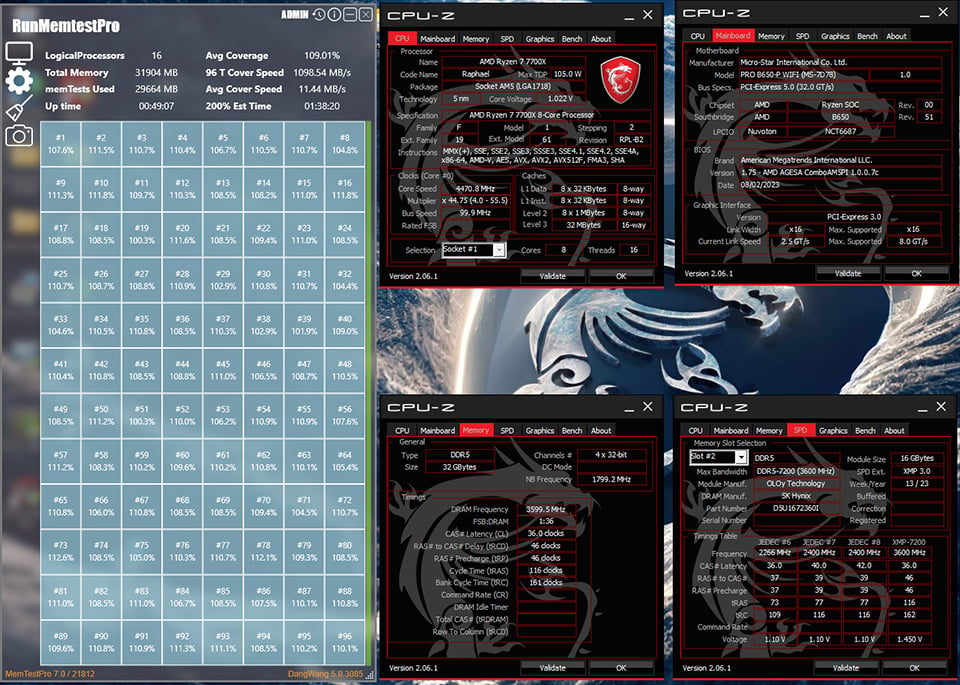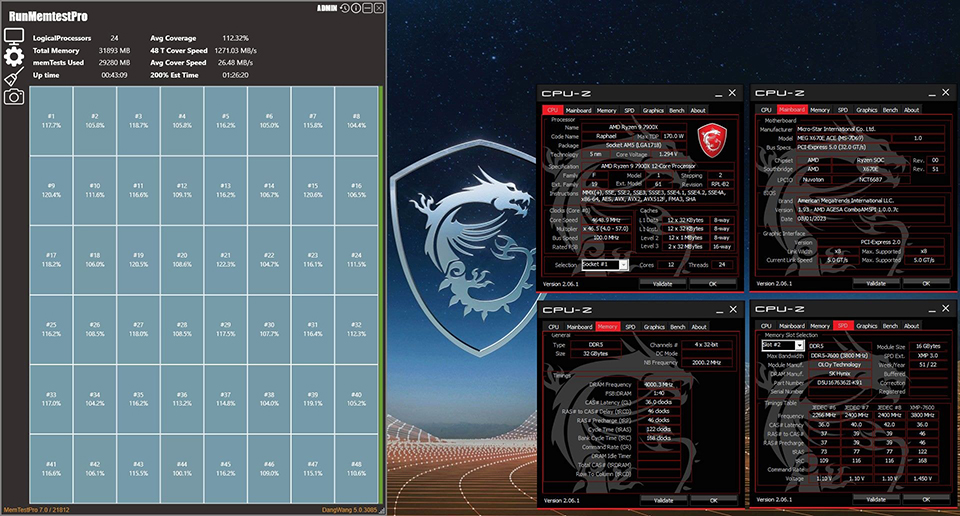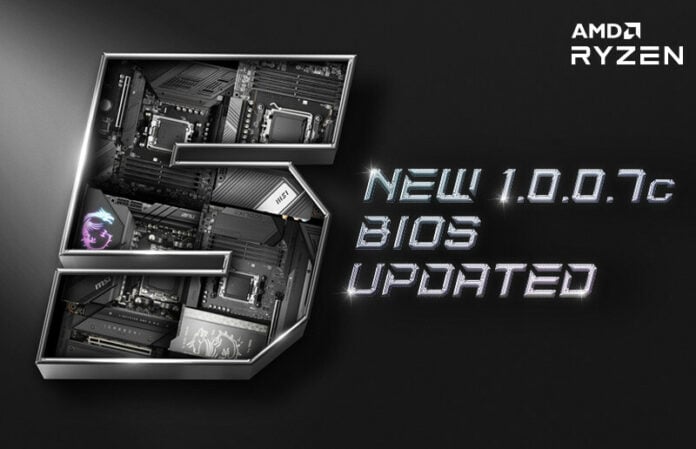MSI has released a new AMD AGESA ComboPI 1.0.0.7c BIOS update for X670E, X670, B650, and A620 motherboard lineups, focusing on high-speed DDR5 memory support alongside stability and bug fixes.
MSI has presented two validation tests using AGESA 1.0.0.7c. The first, based on the brand’s Pro B650-P WIFI board, was capable of running DDR5-7200 RAM at 36-46-46-116 timings, showing that even mainstream boards can handle high-frequency memory. The second demonstrated up to 8,000MT/s CL36 with overclocked DDR5-7600 RAM, albeit on a high-end MEG X670E ACE board.
Either way, this is excellent news for AMD’s AM5 platform, finally allowing Team Read to start catching up with the competition.


As you may know, the previous AGESA 1.0.0.7b BIOS opened the door for high memory clocks by tuning the memory controller and improving memory training during startup, with overclockers breaking the 9,000MT/s barrier. The ‘c’ revision improves on that by supporting more kits. This should also mean that four-DIMM builds, rocking 4x48GB kits for example, can enjoy higher stable frequencies than before.
If you’re interested in trying this update, please check the handy table below for quick access to specific board BIOS files.
| Model | BIOS |
| MEG X670E Godlike | Link |
| MEG X670E Ace | Link |
| MPG X670E Carbon WIFI | Link |
| MAG X670E Tomahawk WIFI | Link |
| PRO X670-P WIFI | Link |
| MPG B650 Carbon WIFI | Link |
| MPG B650 Edge WIFI | Link |
| MPG B650I Edge WIFI | Link |
| MAG B650 Tomahawk WIFI | Link |
| MAG B650M Mortar WIFI | Link |
| MAG B650M Mortar | Link |
| B650M Project Zero | Link |
| PRO B650-P WIFI | Link |
| PRO B650M-A WIFI | Link |
| PRO B650M-A | Link |
| PRO A620M-E | Link |
AGESA 1.0.0.7c isn’t specific to MSI as it’s provided by AMD, meaning other manufacturers are likely to include it in their next BIOS revision – if not already. The benefits may differ from board to board depending on the quality of the product and each brand’s implementation, and as always, take extra precaution when updating by ensuring a backup of your existing BIOS where possible.


